This article was first published September 7, 2022.
If you’ve ever driven past a group of people that look like they should be on a Lord of the Rings film set but there isn't a camera crew in sight, you’ve probably just found some LARPers in their natural habitat.
LARP stands for live action role-play. People from all walks of life dress up as fictional characters and act out battles, quests, and challenges.
Why? Because why not?
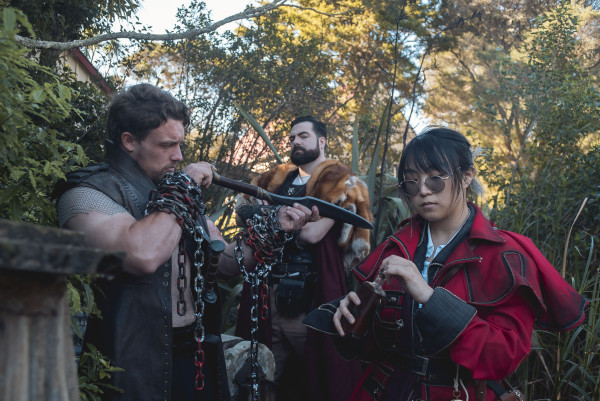
Photo supplied: Sam Geri.
“It’s Dungeons and Dragons come to life,” LARPer Kemys Tubbs says.
“It's collaborative storytelling where you're working together to weave a story and bring an imaginary world to life. But it’s more than that, it gave me the confidence to like who I am.”
Re: spoke with three LARPers about why they do it and what they’ve learnt from the niche hobby.
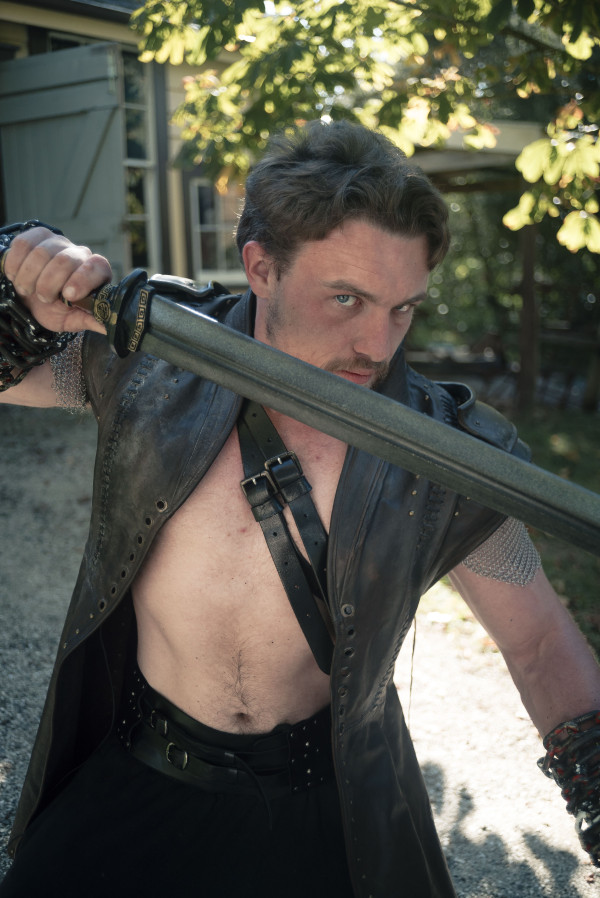
Photo supplied: Sam Geri.
Kemys Tubbs
What has the world of LARPing taught you?
It's definitely taught me to be more confident in myself. I'm not as afraid of people making fun of me anymore.
Before, I was embarrassed even to admit I like LARPing. I thought everyone would think it was this odd nerdy thing that only strange people go and do. And even though some might still think that, LARPing actually gave me the confidence to say, "No, I like this. Let me tell you about it.”
How has LARPing changed the way you live in terms of your health and wellbeing?
I have Tourette syndrome, which is why I have these vocal and bodily twitches.
In the past, I was really self-conscious about it, especially in high school where I was made fun of a lot for it. I felt ostracised, like an outcast. It often made me think I'd never make it in life.
On top of that, I didn't have much confidence in my body. I was overweight and I didn't like looking at myself. And so because of that, I didn't take care of myself.
When I started LARPing I was just beginning my weight loss journey. As time progressed I lost weight and then I got into bodybuilding. And now I'm a competitive bodybuilder on the national circuit.
LARPing has given me the confidence to look at myself and say, I like that about myself, and I like who I am.
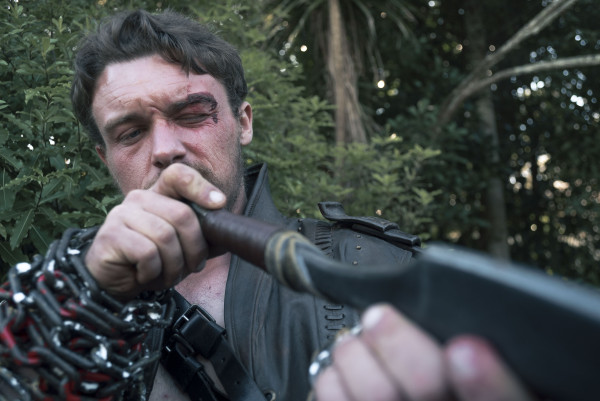
Photo supplied: Sam Geri.
Have you ever used your twitches as part of your character?
A few years ago I played a character who was sort of half-man half-crow, so I decided to tweak my twitches into a crowing sound. Some of the people who had just started LARPing didn’t know I had Tourette’s and just thought it was part of my character.
It allowed me to embrace every part of myself.
Ironically, it also meant I was less anxious about it. And because my twitches are worse when I am anxious, I didn’t have them nearly as much.
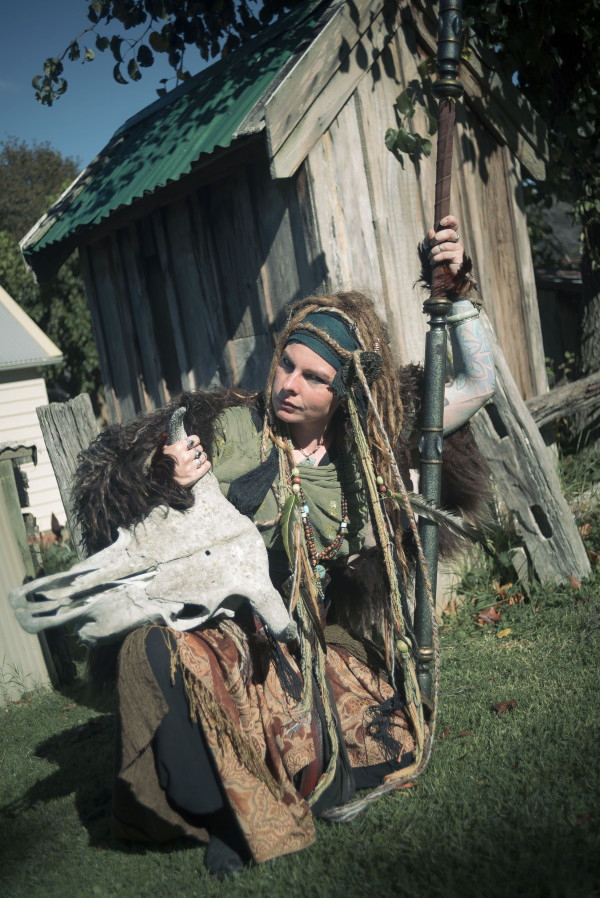
Photo supplied: Sam Geri.
Shae Cooks
What do you love most about LARPing?
It's absolutely a costume angle for me. I love it so much, I’ve turned it into my business.
Because I've had so many people around me asking me to make all this cool shit, I've used that as the force to start my own business. So now I work in film, doing costumes.
What has LARPing taught you?
I think probably the biggest thing it's taught me is to just roll with it. People aren't trying to judge you for everything that you do. So you might as well just have a go and try.
I don't think I would have ever been able to get to where I am business-wise if I didn't have this practice of interacting with this safety net of people.
Getting over your fears in a low-stakes environment helps you out in the real world.
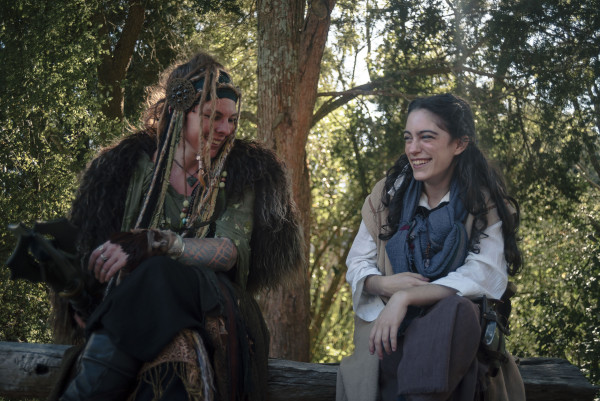
Photo supplied: Sam Geri.
As a female LARPer in a male-dominated community, how would you describe the diversity of the LARPing community?
We do struggle to attract more people outside of the heterosexual white male demographic, especially Māori. I feel like a lot of people outside of that bracket might be less likely to leap into something a bit weird because they are already dealing with so much.
But because it is such a safe space it is a great place to explore yourself. We've actually had a huge influx of trans and non-binary people in the community as well. And oftentimes, people will try out other pronouns to build confidence in this imaginary world first, which is so cool.
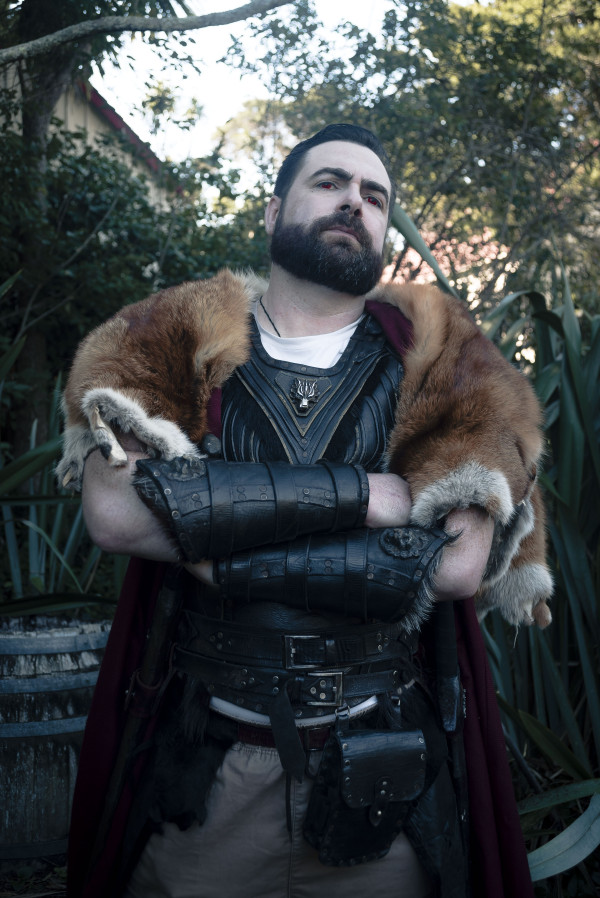
Photo supplied: Sam Geri.
Maxwell Nicholson
How has LARPing changed your life for the better?
I've been diagnosed with clinical depression for most of my life.
When you go through the checklist of things that help with depression, like exercise, doing something you love, having a distraction, interacting with other people, and finding a support network, I quickly realised LARPing was all of those things in one.
What I was drawn to most was the escapism aspect. You get to be somebody else for a weekend. You're not you with all the voices in your head telling you how bad you are. You get to win for a change.
It basically feels like spending the weekend in the sun, which is kind of rare these days.
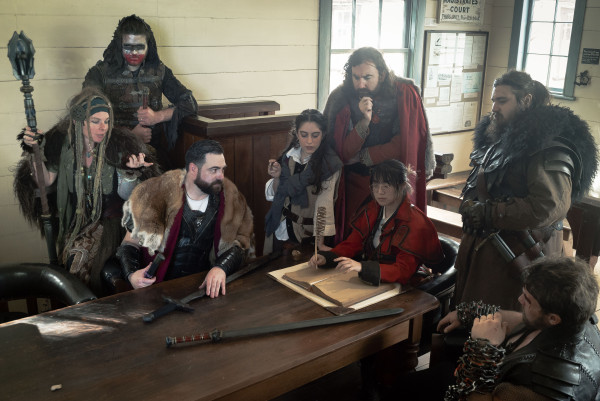
Photo supplied: Sam Geri.
What is it like being a Māori LARPer in a Pākehā-dominated space?
The two people who got me into LARPing were actually both Māori. I was so grateful, we hit it off straight away.
I have thought it is quite weird there aren’t as many Māori LARPers because most of the Māori communities I’m around and most of my bouncer friends who are Māori, they will play Dungeons and Dragons as well.
I think it just comes down to not having somebody to go, “Hey, there's this thing that you can do, come with me.”
Because when you try to explain it to somebody it does sound like the absolute silliest thing. But once you get somebody to show up, they quickly realise that it's too much fun not to do it.
So maybe mana and pride stop that from happening.
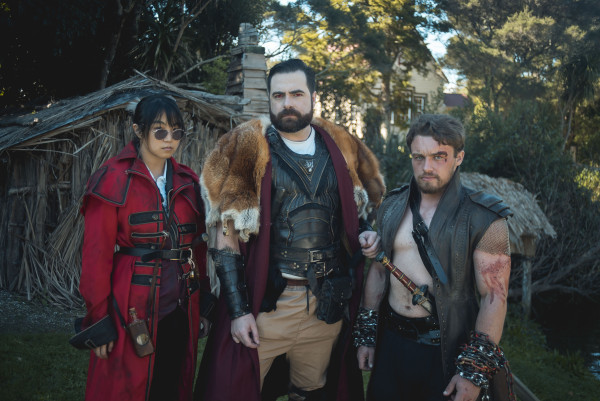
Photo supplied: Sam Geri.
What message do you have for others who might want to try LARPing?
You've really got nothing to lose. It's good to feel like a champion every now and then and this is the best way of getting there. Plus you get to kill things and not die so you feel strangely empowered.
LARP: Heroes, Villains, and Fantasy, a short documentary directed by Holli Lovesy and produced by Paul Kennedy, follows a group of people finding their authentic selves, in a fantasy world.
You can watch the documentary here.
This documentary was made with support from Someday Stories.
All images by Sam Geri.
More stories:
Bullying in NZ boarding schools has gone on for generations
“I didn't become a teacher to contribute and work in an environment like this.”
Call for NZ to lift age of criminal responsibility
An advocate has called for NZ to raise its age of criminal responsibility from 10 to 12 immediately.
No, youth aren't trans just because it's 'popular': study
2.4% of adolescents identified as trans or gender diverse in 201, compared to 1.6% in 2019.